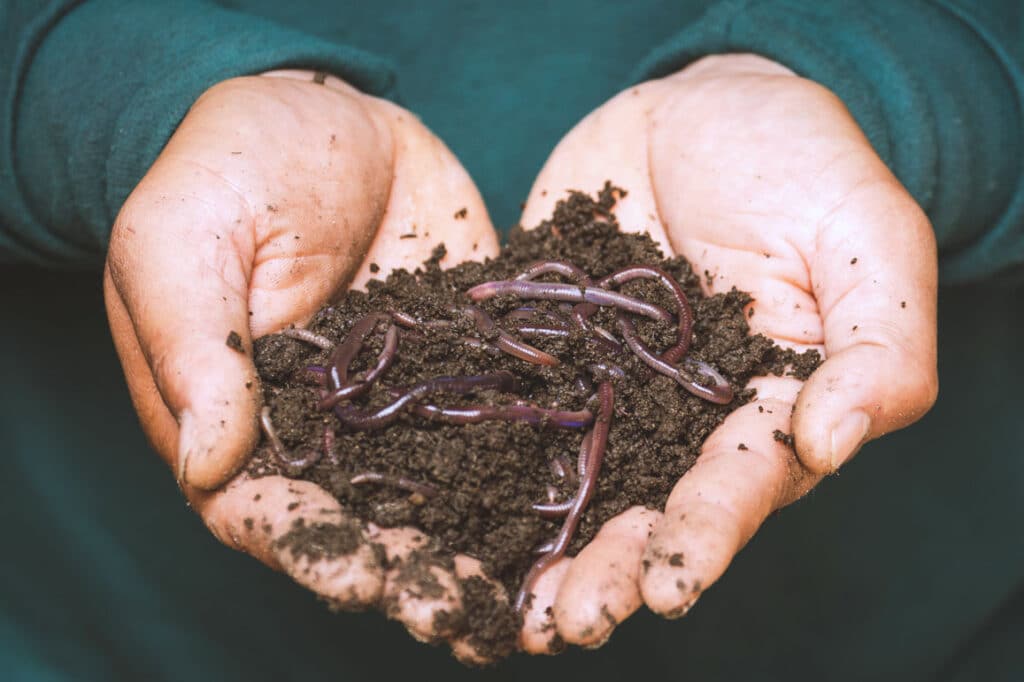So, you want to know how the sausages are made? A funny saying to use when discussing castings because the earthworms used for production tend to look like plump mini sausages while working hard for us. This visual may not be the best if you are eating, but who researches this topic while grubbing.
Let’s start by making sure everyone fully understands how our worm colony produces worm castings. The worm casting production process begins with the organic matter that earthworms consume. This matter then passes through the length of a worm’s digestive tract before being excreted as a bacteria-enriched, pill-shaped cast. We in the business call this process vermicomposting.
Vermicomposting takes quite a long time to master because many different factors can affect the outcome of the product. These variables range from moisture, pH, temperature, aeration, pH value, ammonia, and salt content. At Dirty Bil’s, the focus for our worm castings is making sure that we are packing our castings with the most nutrients we can without causing any damage to new growth. We accomplish this by ensuring that our colony’s bedding is composed of premium locally sourced peat moss and feeding them with high-grade compost.
The Worm Colonies Bedding
Although there are cheaper alternatives to a natural resource like peat moss, we believe peat moss is the best option for worm bedding. Peat moss’s moisture absorption capabilities trap excess water that could harm our colony or cause them to escape the bin, seeking dryer pastures. The peat moss we use also breaks up heavy bedding, providing better oxygenation for the composting process. Dirty Bil’s has an exclusive partnership with local nutrient-rich peat moss farms that provide worm-loving organic matter that keeps our colony cozy.
We set up the worm habitats by…
The Diet Of Dirty Bil’s Worms
Suppose you know something about worms; I guess that they are willing to eat just about anything. While this idea may be correct, the key to getting premium vermicompost will always be high-grade compost. At Dirty bil’s, our compost is top secret, but we have a few do’s and don’t’s of worm feeding.
Worm Feeding Do:
- Pumpkin
- Leftover corn cobs
- Melon rinds
- Banana peels
- Fruit and veggie detritus.
Worm Feeding Don’ts:
- Do not add salty or oily foods because this can result in ph changes in the final product.
- Do not add tomatoes or potatoes because the tiny seeds and spuds can sprout in the containers before the worms fully consume the compost.
- Do not add meat or dairy products because when these ingredients are in your compost, they leave a putrid smell before the worms break them down.
When feeding, we like to mix the compost in…
Although vermicomposting can be a labor-intensive process that takes years of trial and error to get a product worth feeding your plants, the team at dirty bills has the perfected compost “recipe” and habitat that helps the worms produce the cast your plants crave. Whether you are a small rare indoor plant collector or outdoor farmer, try a bag today! We know your plants will thank you!
Do you need information on how to use worm castings in your garden? Check out our complete guide to worm castings here.

